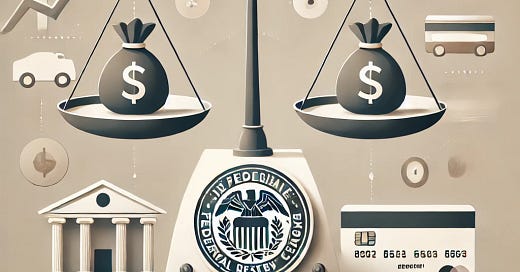Hey Sailors,
Unless you've been living under a rock (or maybe just enjoying a blissful screen-free vacation!), you've probably heard about the Federal Reserve (aka the Fed) and their recent decisions on interest rates. But what exactly are interest rates, and why should you care about what some folks in Washington are doing with them?
Interest Rates: The Price of Money
Think of interest rates like the price tag on borrowing money. When you take out a loan or use a credit card, you're essentially renting money, and the interest rate is the cost of that rental.
The Fed, as the central bank of the United States, has a powerful tool at its disposal: the federal funds rate. This is the interest rate that banks charge each other for overnight loans. By adjusting this rate, the Fed influences borrowing costs throughout the entire economy.
Why is the Fed Raising Rates?
In recent months, the Fed has been steadily raising interest rates. Their main goal? To combat inflation.
Inflation is when prices for goods and services rise, and it can erode your purchasing power. By raising interest rates, the Fed aims to cool down the economy by making borrowing more expensive. This can slow down spending and, in theory, help bring inflation under control.
How Does This Affect You?
The Fed's actions ripple through the economy, impacting your finances in several ways:
Mortgages and Loans: Higher interest rates mean higher borrowing costs for mortgages, car loans, and other types of debt. If you're planning to buy a house or car, be prepared for potentially higher monthly payments.
Credit Cards: Interest rates on credit cards are also likely to rise, making it more expensive to carry a balance. Paying off your credit card debt as quickly as possible becomes even more important in this environment.
Savings Accounts: On the bright side, higher interest rates can lead to better returns on your savings accounts and CDs. Your money might finally start earning a bit more!
The Balancing Act:
The Fed's job is a delicate balancing act. They want to tame inflation without causing the economy to stall out. Raising rates too quickly or too high could trigger a recession, while not raising them enough could allow inflation to spiral out of control.
Stay Informed:
Keeping an eye on the Fed's actions and understanding how interest rates affect your finances is crucial for making smart financial decisions. Stay informed about economic news and consider how these changes might impact your own financial goals.
Want to stay updated with the Fed and interest rates? Check out the Federal Reserve website
As always, feel free to share your thoughts and questions in the comments below!
Stay informed and financially savvy,
Rishi





